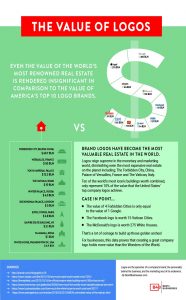Since the start of the year, tech companies have laid off over 150,000 employees. At the same time, the sector at large has been dealing with continual fallout from last month’s collapse of financial heavyweights including SVB and Signature Bank.
Still, even in the midst of all that negativity, there are companies delivering good news. Shekar Ayyar, the CEO of networking software startup Arrcus, saw the warning signs for months before the SVB crisis. As a result, he says, his company began the process of raising a round of funding in February from SVB, Prosperity7 (an arm of Saudi Aramco), and others, narrowly missing the collapse.
“What was striking about our fundraising was that we were able to do this in a climate which essentially already had started becoming very conservative,” says Ayyar. “For us to go out and raise a substantive round of $50 million . . . was a great testament to what we are building in the company as well as our growth.”
Arrcus is just one example of a tech company that was able to get funding right before SVB’s collapse, putting them on a growth path in what’s an otherwise unstable economic environment (to wit: tech stocks remain down, and the sector continues to hemorrhage jobs). Ayyar says the onus is now on Arrcus to help counter the trend of layoffs by hiring in proportion to the company’s swelling valuation.
The company was founded in 2016 and operates in the networking infrastructure space alongside rivals like Cisco and Juniper. “We are presenting both sides of benefits to our customers,” he says. “One, where if they are looking to save costs, we can do that, and second, if they’re looking to make more revenue, we can help them do that as well in terms of new services they can deploy.”
Ayyar says the SVB collapse was “unnerving,” but the company has been able to grow thanks in part to its diversified cash and holdings—something many other tech companies missed the mark on by solely tying themselves to SVB.
Arrcus isn’t the only company that saw the signs. ToolJet, an open-source platform helping to build more applications with fewer engineers and less code, received a round of funding in January for $4.6 million, according to CEO Navaneeth Padanna Kalathil.
Kalathil says the company began reading articles and talking to other startup founders about the economic environment toward the end of 2022 and decided that even though they had runway for two years, it would be safer to go through another raise round.
“Even at the time when we started raising [in August 2022], it was not really good, there were not a lot of funds,” he says.
Kalathil says the economic downturn has actually been beneficial for the two-year-old startup, as there are now more companies—and for ToolJet, potential clients—looking to cut back on spending.
For supply chain visibility software company Overhaul, getting funding before the SVB collapse also allowed them to escape otherwise daunting economic circumstances, CEO Barry Conlon says. Overhaul, which provides shippers with an ability to know the location and condition of their cargo, was able to raise about $35 million just days before the crisis in early March, though the company did not use the bank in its funding round.
“I think it’s a tragedy what happened to them—it just shows you the volatility and the skittishness of this market,” Conlon says. “But I think the biggest problem for this market right now, particularly in the venture ecosystem, is that the market has changed from a risk-off approach, which is effectively when you have no definitive clear path to profitability.”
Conlon says he knows of many other tech companies that are struggling to get new rounds of funding, but luckily, his company is not in that position because they “snuck in before the market turn.” Instead, Overhaul used the funds for an acquisition, which Conlon says allowed them to close major gaps in dispersed supply chains and gain capabilities in emerging markets like Latin America and Africa.
As the company looks to the future, Conlon says they’re continuing to listen to feedback from their customers and he sees himself back out on the acquisition trail in the next year.
“Because of the condition of what’s going on out there, there’s going to be opportunities—some really good products out there that just haven’t reached scale and will struggle to do so,” he says. “So we’re adding more ability and scope to our product delivery to our customers.”
(2)









